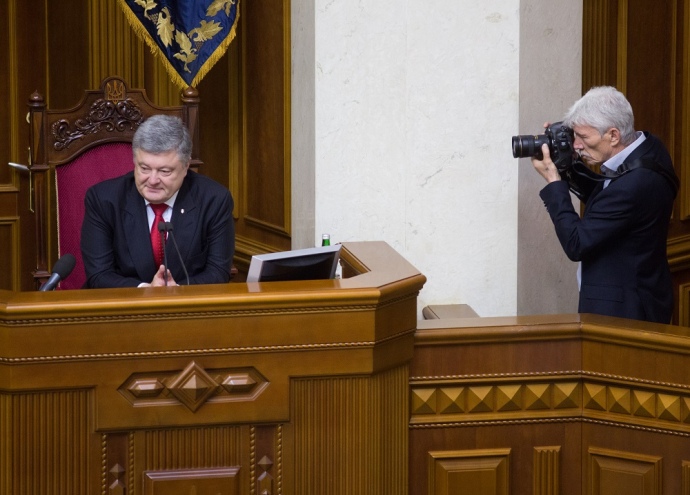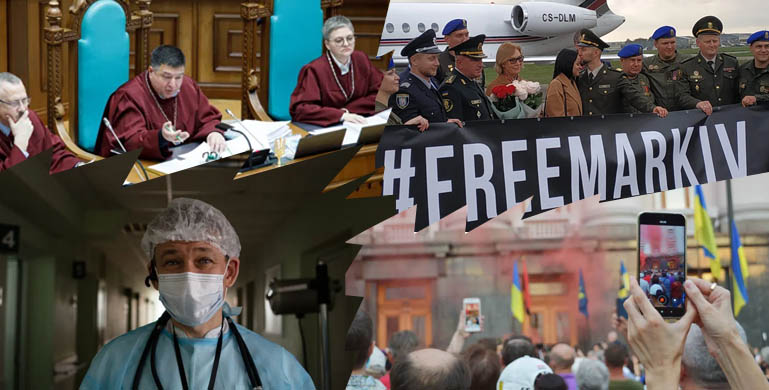Since the Euromaidan revolution, Ukraine’s various international partners have been involved in in the process of reforming the country. One of the important formats is the Ukraine Support Group within the Group of Seven (G7), chaired by Ambassadors of the Seven States to Ukraine (the US, Germany, Canada, the UK, France, Japan, and Italy).
Their proactive position has been vital in advocating numerous critical reforms over the last few years. The G7’s role will likely increase in the run-up to the parliamentary and presidential elections in Ukraine. But Canada’s chairmanship in the G7 has brought significant changes in the group’s modus operandi in Ukraine. Particularly, the ambassadors no longer want to be seen as extensions of Ukrainian civic activists.
Group of Seven: exclusive for Ukraine
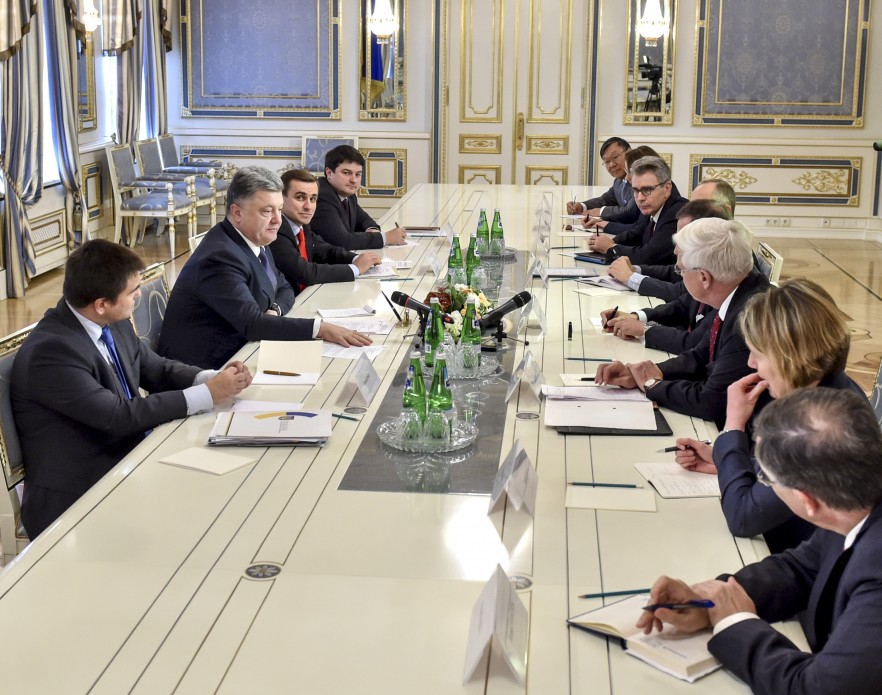
The Group of Seven format is new for the G7, and it has been created exclusively for Ukraine. In some G7 capitals, it is even referred to as a kind of experiment. The Support Group was established during Germany’s chairmanship in the Seven, in 2015.
It should be noted that the Support Group has been established specifically to support reforms in Ukraine.
“The G7 Support Group is not about security, not about Donbas, and not about Crimea, but about reforms,” as clearly outlined by one of the diplomats.
Canada’s chairmanship in the G7: changing the format
Since January, Canada has taken over rotating chairmanship of the G7. In Ukraine, special expectations have been associated with this chairmanship, given the high level of bilateral partnership between the two countries after the Revolution of Dignity and the beginning of Russian aggression in Ukraine.
Indeed, since the first days of chairmanship, Canada has been demonstrated a desire to significantly strengthen the role of the Support Group. According to representatives of other G7 countries, there are, in particular, attempts at a certain “institutionalization” of the Group. During the days of Germany’s chairmanship, the group served as a platform for informal communication; now, during the Canadian chairmanship, meetings of G7 ambassadors take place each two weeks. Apart from that, the ambassadors meet with Ukrainian partners.
As one of the G7 ambassadors admitted: in no country in the world where the current ambassadors of the Group of Seven had to work was there such high level of coordination between the G7 ambassadors as in Ukraine.
However, some G7 ambassadors have been concerned that the Group evolved into a rapid response group with a clear anti-corruption focus. Notably, previously there was a clear dichotomy between the Government and the opposition in the discourse of the international partners. Today, the authorities are opposed to civic organizations in the rhetoric of the ambassadors, which, obviously, is a rather disturbing trend.
“Over the past years, we have been victims of either government or civic organizations’ agenda,” states one of the G7 ambassadors.
The idea that is being developed today is that there is only one Ukraine: there is no government Ukraine or e.g. the “Reanimation Package of Reforms Ukraine.”
The group also intends to change the parameters of discussions with the President. Besides meetings in the format of expressing concerns about current issues, the ambassadors would also like to have a strategic discussion with the head of state. There is reason to believe that such an approach would be also positively perceived by the Bankova. Evidently, for more substantive communication on reforms, the Seven’s ambassadors should consider and propose a format of monthly meetings with the Prime Minister, who, as the head of the Government, is the owner of the reform portfolio.
The most visible aspect of the Support Group’s activities are statements about certain processes in Ukraine. Mostly, those statements had a negative context, as they criticized the slowdowning of certain reforms. Instead of immediately publishing certain statements, holding closed meetings with the relevant stakeholders to discuss the situation would be advisable. The principle is simple: first the dialogue, then the statement.
An example of such an approach was the meeting with Arsen Avakov on 2 February 2018, organized by the G7 ambassadors after the appearance of the so-called “National Militia” on the streets of Kyiv.
Ukraine’s authorities have tended to believe that civic organizations and ambassadors coordinate their actions, and that the Support Group is an instrument of the agenda of certain activists. Given the frictions between the authorities and the anticorruption sector of the civil society, this perception affects both civil society and those ambassadors who are the most open to dialogue with it.
Certain G7 diplomats are convinced that civil society representatives should focus on communicating with Ukrainians in the regions rather than with the Western embassies. They also have commented about the excessively idealistic picture that civil society promotes in the process of reforms, without fully taking into account all the realities.
On the other hand, one of the major failures of the Support Group remains its inability to influence the Ukrainian authorities’ decision to oblige civic activists to disclose their assets through electronic declarations, [a step which has been likened to the authoritarian practices of the governments of Russia and Central Asia – Ed].
Kyiv’s proposals regarding Canada’s chairmanship
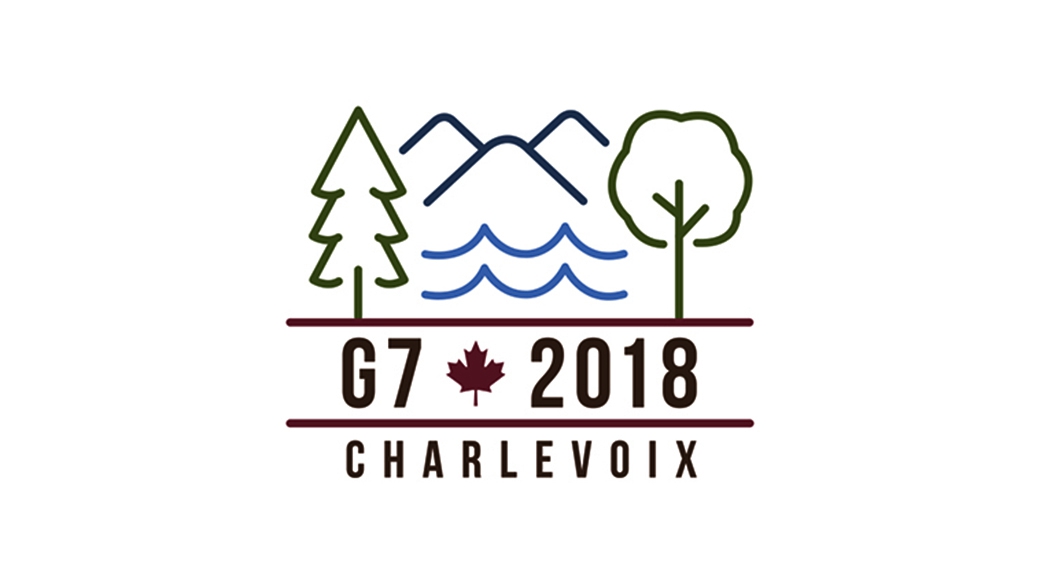
Among the proposals submitted there were both quite predictable desires (to enshrine the G7’s readiness to “to take further restrictive measures in order to increase costs on Russia should its actions so require,” which has been already captured in the statements of the Seven’s summits in Ise-Shima and Taormina, in the final communiqué of the summit), and also quite unexpected ones (Canada’s proposal to lead an international friendship group for Ukrainian Crimea).
Among the other desires of the Ukrainian side, there was Ukraine’s (i.e. the President of Ukraine) guest participation in the G7 summit.
In fact, the G7 practice allows such a participation. As for the invitation of President Poroshenko to attend the summit in Charlevoix, this decision should be made by Canada as the host of the summit. However, it is unlikely that the response will be positive for two reasons.
First, the G7 summit will be dedicated to the world’s oceans and climate change, which is not closely associated with Ukraine. Second, both the President and the Prime Minister of Ukraine had visited Canada within a month in the second half of 2017.
The more realistic prospect (and that is what the Ukrainian diplomacy needs to work on today) is the invitation of Foreign Minister Pavlo Klimkin to attend the G7 Foreign Ministers summit in April.
To sum up, the following trends could be decisive for the activities of the G7 Support Group during Canada’s chairmanship:
- The focus will be on silent diplomacy: closed meetings with the relevant stakeholders will be held before every public statement, according to the “first the dialogue, then the statement” principle;
- The number of statements will be limited, which, certainly, is a positive step: the excessive expression of positions on too many issues devalues the statements. The G7’s statement should be seen as the last warning of the “collective West”;
- There is a readiness for a balance between critical and positive statements, if there will be progress on any particular reform, e.g. a statement of approval of the vote for the healthcare reform;
- There is an intention to reformat the meetings of the Group with the President through adding the elements of strategic discussion to the expression of concerns on certain issues;
- There will be noticeable attempts to avoid turning the G7 Support Group into a rapid response group on anti-corruption issues. We believe that in this context, it would be important to demonstrate where the position of the G7 not only coincides, but also differs from the position of anti-corruption activists, and thus dismantle any reservations regarding the formation of the agenda of the Seven under the influence of certain activists;
- Two important international donors of Ukraine that are not members of either the Seven or the EU, Norway and Switzerland, could be involved in the dialogue with the G7 Support Team through the meetings of the Ambassadors of the Support Group along with the European Union Ambassador.
Furthermore, the author believes that it is important for the Support Group to demonstrate the interaction between the Support Group and the global Group of Seven, so that the Ukrainian side was not tempted to differentiate the positions of the Western embassies in Kyiv with the positions of the Western capitals.
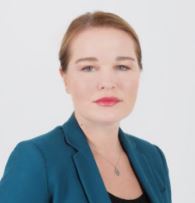
he author would like to express her gratitude for the interviews conducted during the preparation of this article to Ambassador of Canada to Ukraine Roman Waschuk, Ambassador of the Republic of France Isabelle Dumont, Ambassador of Japan to Ukraine Shigeki Sumi, Deputy Ambassador of Germany Wolfgang Bindseil, representatives of the US Embassy in Ukraine, and representatives of the Presidential Administration of Ukraine.





